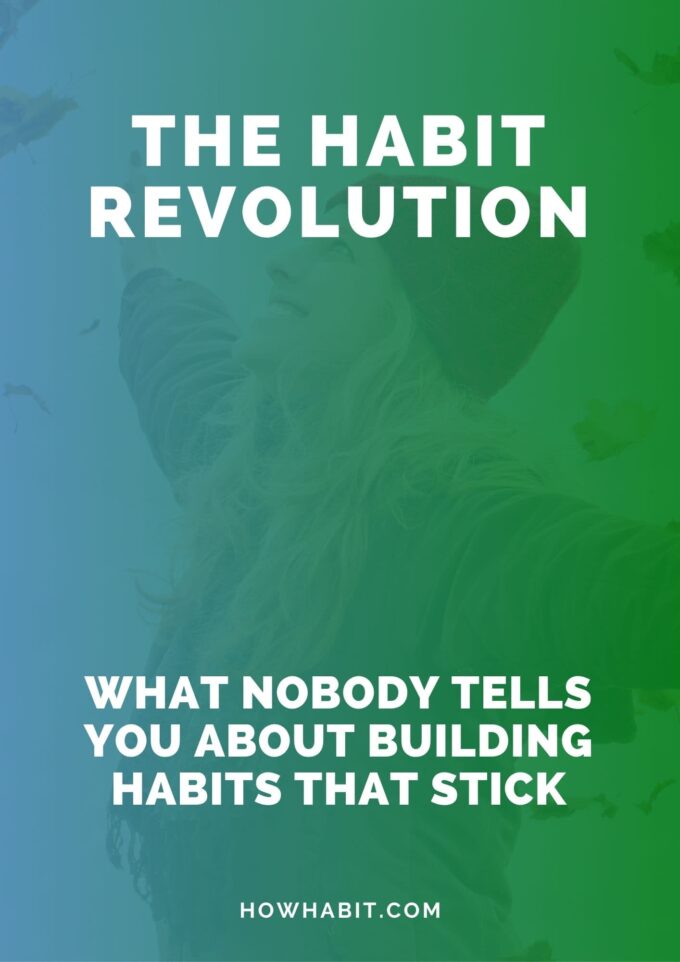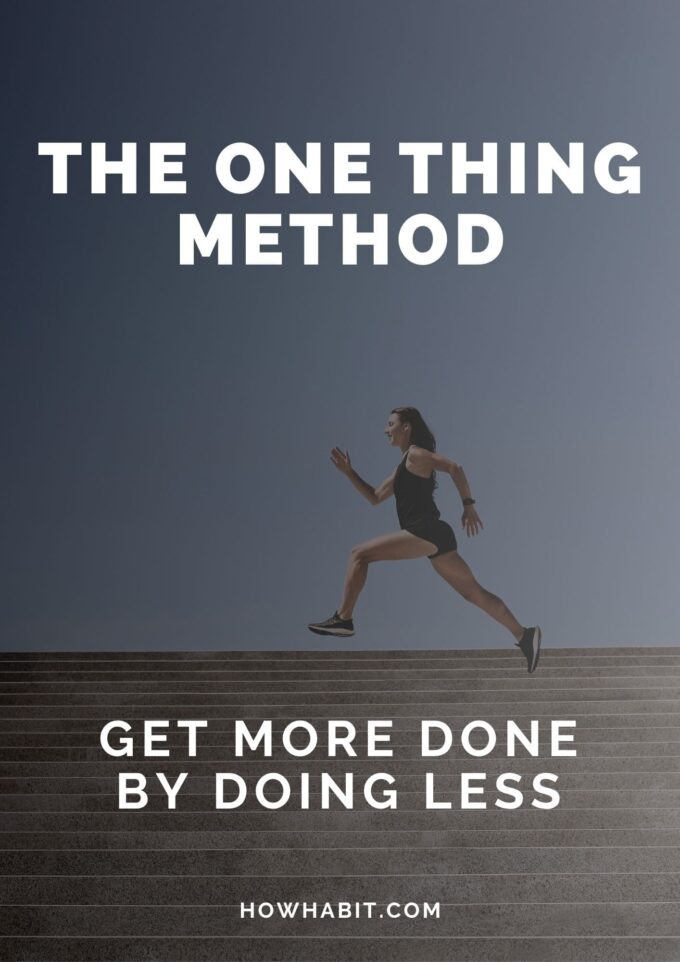Are you tired of feeling stuck in a cycle of negative behaviors?
Do you struggle to break free from bad habits that are holding you back?
Whether you want to quit smoking, stop procrastinating, or eat healthier, in this article, we will explore the most common bad habits and provide tips and strategies for breaking them.
Let’s get started!
The Big List Of Bad Habits To Avoid Content
- What Are Bad Habits and Why Do We Need to Break Them?
- The Big List Of Bad Habits To Avoid
- Bad Habits that Affect Work Performance
- Bad Habits that Affect Personal Relationships
- Bad Habits that Affect Physical Health
- Bad Habits that Affect Mental Health
- How to Break Bad Habits: Tips and Strategies for Success
This comprehensive guide is packed with valuable insights and practical tips to help you identify, understand, and overcome your most common bad habits.
So, get ready to take control of your life and break free from the chains of negative behaviors once and for all.
What Are Bad Habits and Why Do We Need to Break Them?
Bad habits are behaviors that harm our physical, mental, and emotional well-being. They are often developed over time and become an automatic response to certain situations.
Bad habits can range from minor nuisances to severe addictions that can devastate our lives.
Breaking bad habits is essential for several reasons.
First, it can improve your physical health. For example, quitting smoking can reduce the risk of developing lung cancer, heart disease, and other respiratory problems.
Second, breaking bad habits can improve mental health by reducing stress, anxiety, and depression.
Finally, breaking bad habits can help us be more productive, successful, and happy personally and professionally.
The Big List Of Bad Habits To Avoid

Here is an extensive list of habits you should avoid.
Keep in mind that not every habit in that list has to be unhealthy for you.
Often, it’s all about moderation. Drinking a couple of beers every other month is probably no problem. On the other hand, drinking a couple of beers every day might be a big problem.
In the end, a habit that is unhealthy for you could be healthy for somebody else and vice versa.
167 bad habits to avoid:
- Smoking cigarettes
- Overeating fast food
- Drinking too much alcohol (if you think you may have alcoholism, please get professional help)
- Biting fingernails
- Biting your pen
- Poor hygiene
- Fiddling with your hair
- Hair picking or Trichotillomania (hair pulling)
- Picking your nose
- Picking your teeth in public
- Skin picking
- Forgetting to shave
- Emotional eating
- Eating when you are bored
- Overeating meat
- Overeating dairy
- Overeating gluten
- Excessive use of salt
- Eating white sugar and too much candy
- Overeating chocolate
- Chewing gum
- Chewing tobacco
- Chewing with mouth open
- Chewing a pencil or pen
- Popping gum
- Drinking coffee
- Drinking soda/pop
- Drinking too many energy drinks
- Skipping meals
- Overspending
- Emotional shopping
- Spending on credit cards
- Watching reality television
- YouTube
- Binge-watching Netflix or any other streaming service
- Obsessively checking your phone
- Opening countless tabs
- Trolling comments
- Video games
- Cracking your knuckles
- Speaking with your mouth full
- Talking badly to yourself
- Using slang
- Humming to yourself
- Swearing
- All work and no play
- Smoking e-cigarettes
- Nibbling while cooking
- Overeating
- Snacking
- Not holding eye contact
- Interrupting someone
- Sleeping-in
- Skipping the gym
- Saying “Ummm” and “Ahhh”
- Porn watching
- Staying up late
- Sleeping with makeup
- Lying
- Overmedicating
- Eating too fast/not chewing
- Skipping breakfast
- Not protecting yourself from the sun
- Not brushing your teeth
- Not flossing
- Grinding your teeth
- Using devices at night
- Using your phone in bed
- Negative self-talk/self-criticism
- Saying “yes” to everything
- Daydreaming
- Procrastinating
- Spending too much time online
- Breaking promises to yourself
- Rambling
- Watching TV right after work
- Falling asleep in class
- Slouching at the computer
- Slouching while walking
- Letting fear stop you from trying something new
- Telling secrets
- Talking in class
- Gaming or online surfing in class or work
- Not doing your homework
- Skipping class
- Skipping work
- Sitting too close to the TV or any other Screen
- Picking fights
- Leaving your wallet/keys in random places
- Pinching pennies
- Spitting
- Leaving the fridge open
- Yelling at your BF/GF
- Talking about your sister, brother, or friends behind her back
- Losing your temper
- Complaining
- Annoying people on purpose
- Being overly critical
- Being argumentative
- Being an attention hog
- Not showering
- Picking scabs
- Popping zits
- Biting your lips
- Scratching an itch
- Chewing on your hair
- Scratching/itching
- Putting dishes in the sink and not washing them
- Fiddling with keys
- Cheek biting
- Shoplifting
- Hoarding
- Being a know-it-all
- Bragging
- Being late
- Eavesdropping
- Exaggerating
- Excessive throat clearing
- Fidgeting
- Flaking out
- Freeloading
- Gambling
- Littering (really, stop littering)
- Monopolizing a conversation or, in other words, Monologing
- Name dropping
- One-upping
- Speeding
- Talking during movies
- Tapping fingers/pens/etc.
- Thumb sucking
- Whining
- Borrowing and not returning items
- Belching (Burping)
- Loitering
- Being rude
- Being lazy
- Being disrespectful
- Not listening
- Being unmotivated
- Being unproductive
- Avoiding responsibility
- Lacking goals
- Neglecting to plan ahead
- Being disorganized
- Being tardy
- Being unreliable
- Evading accountability
- Exhibiting inconsistency
- Reacting instead of initiating
- Being indecisiveness
- Displaying inflexibility
- Lacking empathy
- Remaining close-minded
- Being disrespectful towards others
- Proving untrustworthy
- Being unprofessional
- Being impolite
- Showing unkindness
- Lacking compassion
- Demonstrating stinginess
- Showing arrogance
- Harboring negativity
- Leaning towards passivity
- Not telling the truth to yourself and others
Breaking these bad habits can take time and effort, but improving your life and achieving your goals is worth it.
Bad Habits that Affect Work Performance
Here are some of the most common bad habits that may affect your work performance:
- Procrastination: Procrastinating can lead to missed deadlines, rushed work, and lower-quality output.
- Disorganization: Being disorganized can lead to missed appointments, lost files, and general chaos in the workplace.
- Poor time management: Poor time management can lead to overcommitment, missed deadlines, and unnecessary stress.
- Lack of communication: Lack of communication can lead to misunderstandings, conflicts, and missed opportunities.
- Negativity: Being negative can create a toxic environment in the workplace, affecting morale and productivity.
Bad Habits that Affect Personal Relationships
Here are some of the most common bad habits that affect personal relationships:
- Criticizing: Constantly criticizing partners or friends can make them feel unappreciated and unwanted. It’s important to focus on the positive aspects of our relationship and communicate our concerns constructively and respectfully.
- Not Listening: Listening is essential to communication, and not listening to your partner can make them feel ignored and unimportant. It’s vital to give your partner your undivided attention and actively listen to what they say.
- Being Defensive: Being defensive can make your partner feel like they can’t express their concerns without triggering an argument. It’s important to be open-minded and empathetic to your partner’s point of view, even if you disagree with them.
- Holding Grudges: Holding grudges can create a toxic environment in your relationships. Letting go of mistakes is important to move forward and build a stronger relationship. But while doing this, keep your boundaries intact.
- Being Disrespectful: Disrespecting your partner can make them feel belittled and unvalued. It’s important to treat your partner with kindness, respect, and empathy. But of course, only if your partner shows you kindness, respect, and empathy. If not, you should hold them accountable.
Bad Habits that Affect Physical Health
Here are some of the most common bad habits that affect physical health:
- Sedentary Lifestyle: A sedentary lifestyle, such as sitting for long periods of time, can lead to weight gain, muscle weakness, and poor circulation. Incorporating physical activity into your daily routine is important to improve your physical health.
- Poor Nutrition: Poor nutrition, such as a high intake of processed foods and sugary drinks, can lead to obesity, diabetes, and heart disease. Eating a balanced diet rich in fruits, vegetables, whole grains, and lean protein is important to improve your physical health.
- Lack of Sleep: Lack of sleep can lead to fatigue, irritability, and a weakened immune system, affecting your physical health. It’s important to prioritize sleep and aim for 7-9 hours of sleep per night.
- Smoking: Smoking can lead to lung cancer, heart disease, and other health issues. It’s important to quit smoking and seek help from a healthcare professional if needed.
- Excessive Alcohol Intake: Excessive alcohol intake can lead to liver disease, high blood pressure, and other health problems. It’s important to drink in moderation and seek help if needed to improve your physical health.
Bad Habits that Affect Mental Health
Here are some of the most common bad habits that affect mental health:
- Negative Self-Talk: Negative self-talk can lead to a lack of self-confidence, self-doubt, and low self-esteem. It’s important to practice self-compassion and positive self-talk.
- Unhealthy Coping Mechanisms: Unhealthy coping mechanisms, such as substance abuse or emotional eating, can provide temporary relief but ultimately lead to more problems. It’s important to identify healthy coping mechanisms, such as exercise or meditation, to manage stress and improve our mental health.
- Isolation: Isolation can lead to loneliness, depression, and anxiety.
- Perfectionism: Perfectionism can lead to unrealistic expectations, self-criticism, and anxiety. It’s important to recognize that we are all human and make mistakes. Focus on progress rather than perfection.
Breaking Bad Habits: Tips and Strategies for Success
We all have bad habits that we’d like to break.
Breaking these habits can be challenging, whether it’s biting your nails, procrastinating, or overeating.
However, with the right mindset, tools, and strategies, overcoming these obstacles and replacing them with good habits is possible.
Here are some tips and strategies for breaking bad habits and creating lasting change.
Breaking bad habits steps:
Step 1: Identify the bad habit
Recognize the bad habit and its impact on your life. We need to see the habit for what it is. How is it showing up in your life? More importantly, let’s understand how it’s been holding you back? Awareness is the first step towards transformation.
Step 2: Set Clear Goals
Set clear, specific, and achievable goals for breaking your bad habits. Write them down and track them.
Step 3: No Bad Habits, Just Habits
Here’s a twist: no habit is inherently bad. It’s all about perspective. Each habit is trying to help in some way. Each habit serves a purpose, even if it’s not the best way to meet our needs. Understanding this can change everything.
Step 4: Identify Your Triggers
What sets off your bad habit? Once you know, you can prepare to deal with it in a new way. Identifying triggers is like being a detective in your own life story. Start by identifying the triggers that lead to your bad habits. For example, if you tend to overeat when stressed, find ways to manage your stress, such as meditation, exercise, or talking to a friend.
Step 5: Make a Swap
Now, for each trigger, let’s brainstorm a positive habit to take its place. Can we find something better to do when those old urges pop up? Stress-smoking? How about a walk or some deep breaths instead? You’re rewiring your brain for success with each positive choice.
Step 6: Create a Support System
Who’s Got Your Back? Get your crew together. You’re not in this alone. Build a support system that’s as invested in your success as you are. Whether it’s a support group, an accountability buddy, or a professional therapist, having people cheer you on makes a difference.
Step 7: Stay in the Now
Practice mindfulness by being present and aware of your thoughts, feelings, and behaviors. Practicing mindfulness brings you into the present and tunes you into your thoughts, feelings, and actions. It’s a powerful way to identify and change negative patterns of behavior.
Step 8: Reach Out
If you’re feeling stuck or need an extra boost, there’s strength in seeking help. Sometimes, we could all use a helping hand. Never be shy about reaching out to someone who can give advice and cheer you on. Mental health professionals, support groups, or a trusted loved one can offer the guidance and encouragement you need.
Step 9: Accountability: Your Secret Weapon
Keep in Check with a Buddy or stay accountable by leaning on mentors, therapists, or coaches. Having a mentor, a work pal, or a coach can make a huge difference. They can offer valuable insights and keep you on track toward your goals. They help keep your eyes on the prize and remind you why you started.
Step 10: Celebrate Every Victory
Every Win Counts. Don’t let any progress go unnoticed. Celebrating your successes, big or small, reinforces your hard work and keeps the momentum going. Throw a mini-party for every step you take in the right direction. It’s about recognizing your effort and stoking that fire to keep going. Give yourself the recognition you deserve!
Remember, every journey starts with a single step.
You’re capable of incredible transformation, and every day is an opportunity to make choices that align with the person you want to be.
Embrace your potential, celebrate your strength, and let’s take these steps together. You’ve got this!
Bad Habits Conclusion
Look, change isn’t always a walk in the park, but it’s possible, especially with a friend by your side.
You’re capable of smashing these habits to the curb.
I’m here cheering you on every step of the way! Let’s do this together, one small victory at a time.
If you need more help breaking bad habits, you might want to join the HowHabit Newsletter or participate in the HowHabit Pro program that will help you be accountable for breaking your bad habits.
In the end, remember that breaking bad habits takes time, effort, and commitment. But with the right tools and strategies, it’s possible to create lasting change and improve your quality of life.
You got this!










